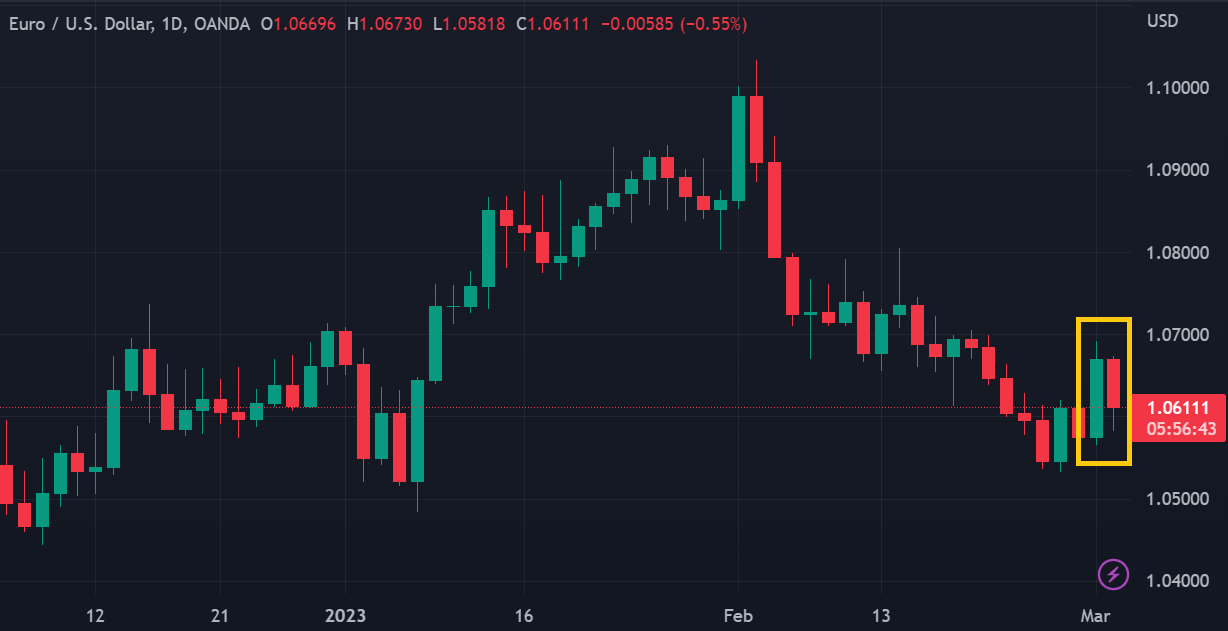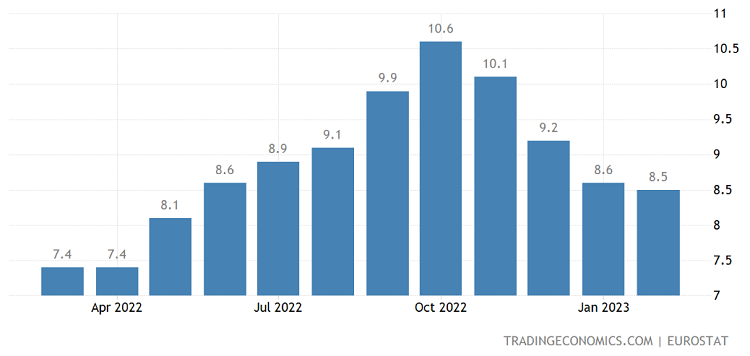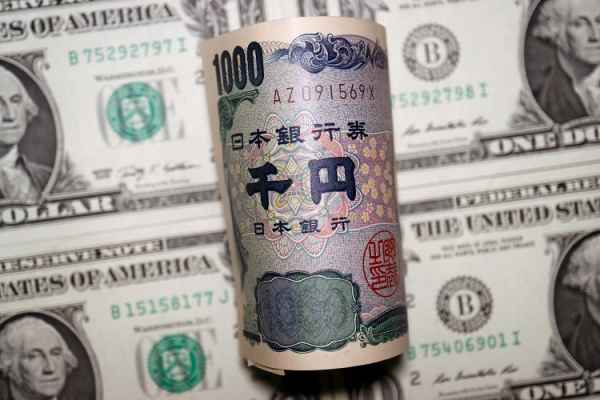Today's Eurozone inflation data showed a continued downward trend despite the pace exceeding expectations.
The euro briefly strengthened but retreated again in Thursday's (March 2) trading session following the latest Eurozone inflation data release during the European session. EUR/USD was trading around 1.0610 as it entered the New York session, moving away from yesterday's one-week high.
 EUR/USD Daily chart via TradingView
EUR/USD Daily chart via TradingView
A series of regional data released yesterday showed accelerated inflation rates in France and Spain. Germany's inflation rate for February also remained at 8.7% (year-over-year), like in January.
Such a situation raised market expectations for a hike in the European Central Bank's (ECB) interest rates, boosting EUR/USD. Unfortunately, today's Eurozone inflation report showed a sustained downward trend, despite exceeding expectations.
Eurostat reported that the Eurozone's inflation rate reached 8.5% (year-over-year) as of February 2023. This figure was higher than the consensus estimate of 8.2% but slower than the 8.6% increase in the previous period.

Data on Eurozone inflation like this allows the ECB to continue with its planned interest rate hikes. However, the data has dashed the hopes of some market participants expecting higher terminal interest rates.
"Inflation was clearly worse than forecast but maybe not as bad as feared given expectations had shifted following national data in the last few days," said Ben Laidler, Global Markets Strategist, Etoro in London. "I think the base case is the ECB keeps on at a 50 basis point hike pace, which would still be pretty hawkish."
Several other analysts continue to highlight the divergence between the macro conditions of the Eurozone and the United States as one of the main factors that will affect EUR/USD going forward. Recent data from the Eurozone and the US have consistently shown inflation rates that exceed expectations, so the important question now is which region will experience disinflation faster.
"As the euro/dollar is substantially below where its one year interest rate swaps, if euro zone inflation doesn't start to fall and the U.S. CPI resumes showing signs of disinflation, euro could rally sharply, said Simon Harvey, head of FX strategy at Monex Europe.

 Dedicated FREE FOREX VPS
Dedicated FREE FOREX VPS Free FOREX Virtual Private Server
Free FOREX Virtual Private Server MT4 Demo Contest, Get $500
MT4 Demo Contest, Get $500 Sign Up for an Account, Claim 60% Deposit Bonus
Sign Up for an Account, Claim 60% Deposit Bonus Free MT4/MT5 VPS 2024
Free MT4/MT5 VPS 2024 Send E-mail and Get Free Merchandise
Send E-mail and Get Free Merchandise $1K Refer a Friend Bonus for Pepperstone Pro clients
$1K Refer a Friend Bonus for Pepperstone Pro clients Maximize Your Earnings with 100% Deposit bonus
Maximize Your Earnings with 100% Deposit bonus Trade to Win, $5,000 Monthly Demo Contest
Trade to Win, $5,000 Monthly Demo Contest Claim 30% + 15% Deposit Bonus from LiteFinance
Claim 30% + 15% Deposit Bonus from LiteFinance






